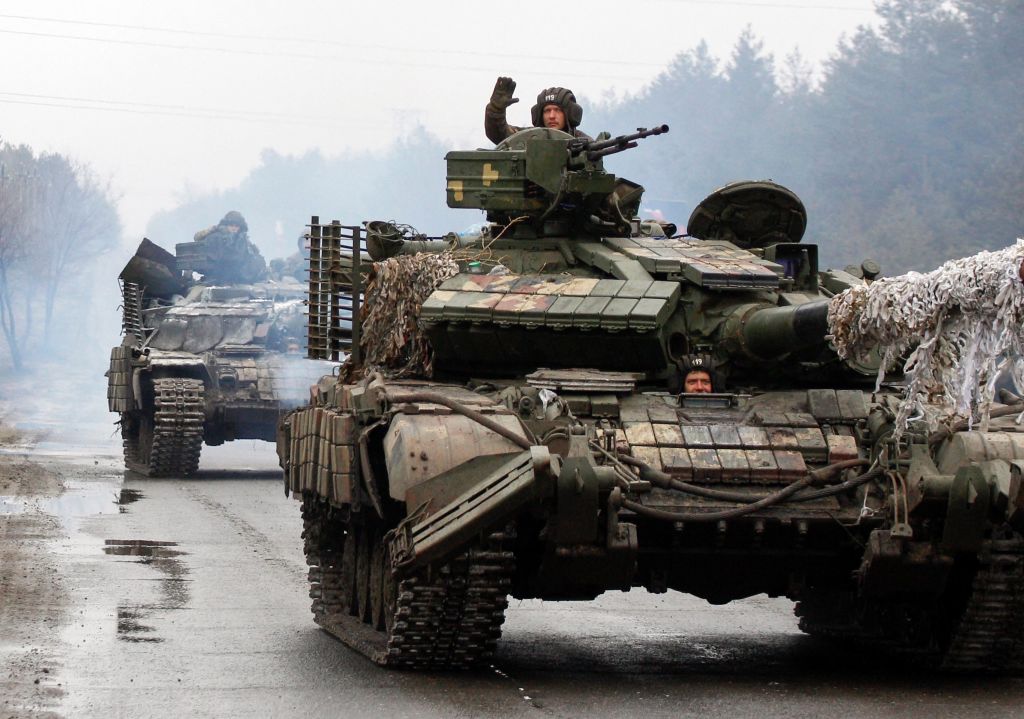My husband came into the living room the other day as I was sitting on the couch, scrolling on my computer — doomscrolling to be more accurate.
“What are you doing?” he asked. “Are you watching… war?”
We laughed at the absurdity of the comment but he wasn’t wrong. That’s exactly what we had been doing for days. Watching war on social media.
Needless to say, it was a challenge to focus on this piece. As the conflict escalated rapidly in Ukraine, I couldn’t tear myself away from the drama as it unfolded on Twitter. Putin seemed backed into a corner, desperate and using many of the same barbaric tactics he used in Syria. Bombing hospitals. Bombing kindergartens. Killing civilians. As I write, there is a lot of talk about the chance of nuclear confrontation with Russia.
There is a rubbernecking feel to the obsessive scrolling that makes me uncomfortable. My fixation on the people huddled in metro-stations-turned-bomb shelters while I wait for my Postmates to arrive feels macabre. I justify it by telling myself that I’m “living through history” and that it’s important to be informed — but how “informed” am I actually? Propaganda in times of war has always been powerful. It’s even more seductive now that it’s supercharged by social-media algorithms and spreads faster than ever.
Many of the stories of heroism or heartbreak that went viral early in the Ukraine fighting were proven to be false. There was a tale about thirteen Ukrainian soldiers who bravely sacrificed their lives defending Snake Island, their last words captured on audio: “Russian warship, go fuck yourselves.” It turns out they surrendered and were taken prisoners of war. I’m happy the soldiers are alive — but a part of me is sad that story isn’t true.
The legend of the Ghost of Kyiv, a Ukrainian pilot singlehandedly taking out Russian jets, trended for hours on Twitter. Whether this pilot exists or not is still up for debate but most of the video that was attributed to this mystery fighter is either from flight simulators, video games or another war entirely. The fact that most of us can’t tell the difference between high-quality video games and actual war is disturbing to say the least.
There was a video of a Ukrainian man weeping as he kissed his daughter goodbye, putting her on a train while he bravely stayed behind to defend his country. I won’t lie, I cried when I saw it. Then new information came to light: it was actually a Russian man going off to fight the Ukrainians. It’s still sad for that man and his daughter but, revealing my own biases, it definitely doesn’t elicit the same emotions as it did when I thought it was a Ukrainian man.
On a lighter note, even Pornhub got dragged into the viral war propaganda game. As word of international sanctions punishing Russia for invading Ukraine were announced, a rumor started that Pornhub was blocking Russian users from accessing their site. There is no evidence this was true — but the rumor spread far and wide regardless.
Do we learn anything? It appears we do not. As Russian forces closed in on Kyiv, a TikTok video went going viral on Twitter. The text that accompanied the video reads: “The future is a very weird place. Ukrainians are uploading videos on TikTok about how to drive abandoned or captured Russian military vehicles.” At the time of writing this it has almost 20k retweets and 75k likes. But if you kept scrolling, the author of the tweet has now updated it with a correction:
“Folks are saying the framing is inaccurate and that this is generally just instructions for how to drive a tank. I trusted a Telegram channel, which I should know not to do by now. Apologies for that, and I hope the video helps someone who has the occasion to drive a tank.” It’s too late though. The lie has already spread and by the time the truth awakens, our attention will be captured by another compelling tale.
From the safety of my couch, I view not only the graphic imagery and the propaganda, but also the thousands of competing narratives surrounding an ever-evolving world event. If you aren’t hearing air raid sirens and dodging bombs, war has become a choose-your-own-adventure for your belief system; a smörgåsbord of confirmation bias. You can curate your news or scroll until you see what you want to see.
MAGA world can lament that this wouldn’t have ever happened under their Dear Leader’s watch. If you’re an anti-war populist you can focus on the idea that being antiwar is all that matters and nothing is worth defending. Or you can be anti-US imperialism and remind everyone of the fact that we bombed Somalia a couple of weeks ago and that nobody cared when Russian did this to Syria. There is some truth to all of these viewpoints and the possibilities are endless for where one can land on the spectrum of takes.
The David and Goliath narrative is what captures my heart and seduces my biases. Right now, I have no idea who will win. It’s scary. I hope the world will still be here when you read this, and that this season of war ends with a victory for the little guy.
This article was originally published in The Spectator’s April 2022 World edition.

























